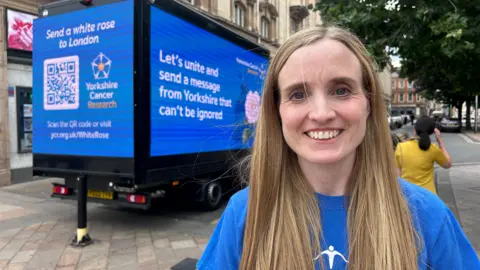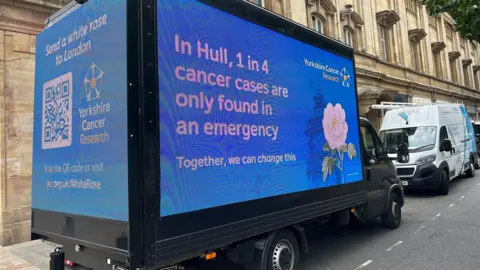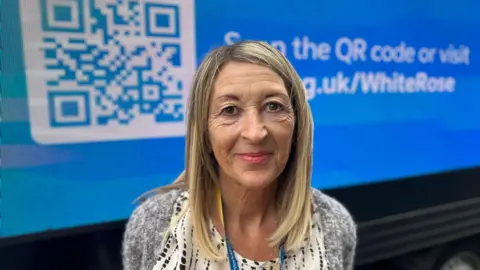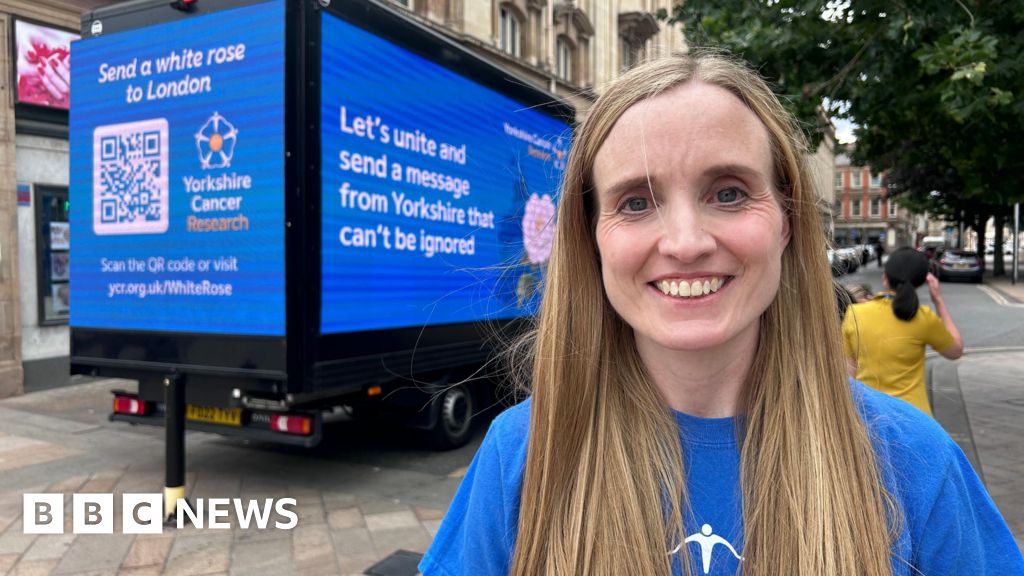 BBC News
BBC NewsA charity has brought its “white rose” campaign van to Hull to highlight how more than one in four cancers there are only found in an emergency.
Yorkshire Cancer Research said the city had the second highest rate of late diagnosis in England.
Nikki Brady, from the charity, called on the government to take account of “the issues local communities are facing in Yorkshire”.
A spokesperson for the Department of Health and Social Care (DHSC) said it was tackling cancer inequalities “by ensuring everyone, regardless of where they live or their background, can access early diagnosis and faster treatment”.
According to analysis by the charity, 26% of cancers in Hull are diagnosed through an emergency route such as A&E, compared with 19% in England. The average in Yorkshire is 21%.
 BBC News
BBC NewsMs Brady said: “We know that one in two cancers are diagnosed late in Hull.
“Reasons can be because people are coming forward with symptoms at a later stage, because they have difficulty accessing certain health care, or have problems getting a GP appointment, or they might be worried or scared.”
The charity’s campaign involves delivering hundreds of white roses to Health Secretary Wes Streeting.
It wants issues in Yorkshire to be considered as part of the government’s national cancer plan, which is due to be published later this year.
Donna Mccunnel, 57, decided to work in a Yorkshire Cancer Research shop after her own experience with pancreatic cancer in 2008.
She recalled how she was “just trying to keep strong for my children and my grandchildren until I found out I was cancer free”.
 BBC News
BBC NewsBut she added: “Deep down it always left that lingering feeling of how long have I got? What’s going to happen?”
Ms Mccunnel wants people to “stand with Yorkshire” and send white roses to London to make sure more cancers are caught in the early stages.
The DHSC spokesperson said it was opening new community diagnostic centres and “investing an extra £1.65bn, including for new surgical hubs and AI-enabled scanners, to help catch more cancers faster across all communities”.
According to the government department, an extra 90,000 people were diagnosed with cancer or told they did not have the disease between July 2024 and March this year, including a record number in February.

